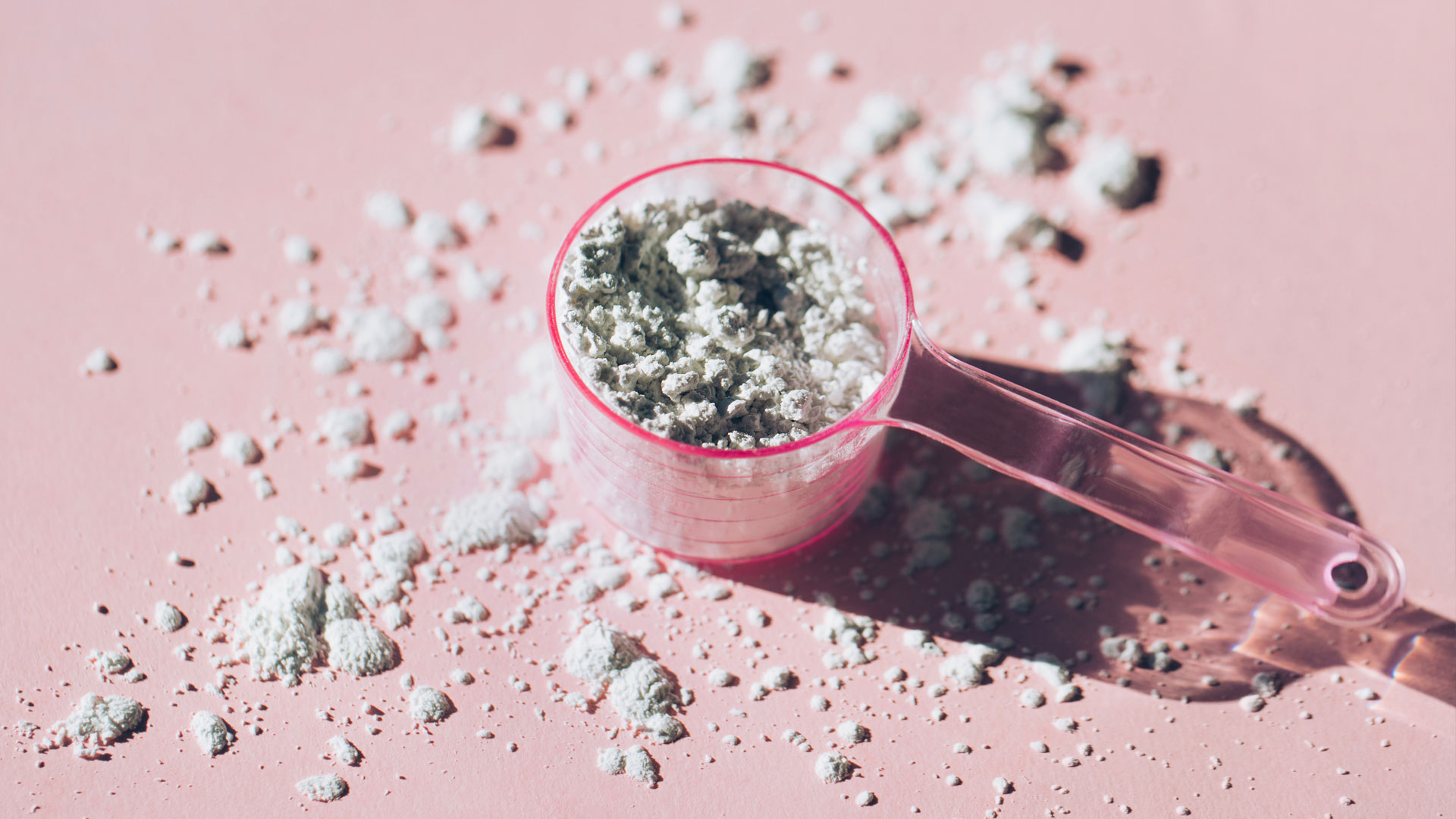Protein powder side effects: myths vs reality
What are protein powder side effects? And are these supplements really safe to take?


Find out exactly what protein powder side effects are as we explain the truth about these supplements, and bust some common myths too. Millions of people take protein supplements looking for a range of health benefits, from weight loss to muscle building. You may have been browsing the best protein powder for weight loss or the best protein powder for women and wondered about protein powder side effects.
While protein powders are generally recognized as safe to consume, some people can experience mild digestive discomfort after drinking a protein shake. This discomfort is often linked to an intolerance or allergy to the ingredients in that particular protein powder. Thankfully, there is a range of powders available to suit different tastes and dietary requirements.
Here, we will look at the science and speak to an expert to separate the myths from facts about protein powder.
Protein powder side effects: what you need to know
Protein powders are generally recognized as safe as a dietary supplement by the Food and Drug Administration (FDA), although you may experience digestive side effects if you have food intolerances. Many protein powders are dairy-based, which may lead to stomach upset, bloating, and gas if you're lactose intolerant or sensitive to lactose.
Cow’s milk allergies are infrequent in adults. Still, if you have an allergy and consume a protein powder such as whey protein or casein, you may experience hives, rashes, facial swelling, throat and tongue swelling, and a runny nose.
If you want to try a plant-based protein powder, read the ingredient label carefully to identify potential food allergens. For example, soy and gluten are commonly found in plant-based protein powders. Additionally, people with irritable bowel syndrome (IBS) may experience bloating and cramping from pea protein powder or powders with added sugar alcohols.
If you have any intolerances or allergies, be sure to read the label of your protein powder to check for anything that may not agree with you. If you experience side effects from taking protein powder and are not aware of any allergies or intolerances, check in with your doctor.
Get the Fit&Well Newsletter
Start your week with achievable workout ideas, health tips and wellbeing advice in your inbox.
Protein powder myths
There are many myths and misconceptions around protein powders, and we’ve rounded up and debunked the most common myths here.

Myth 1: Protein powder is just for bodybuilders
Sports scientist and ACSM member Lauren Maples says, “Many people believe only bodybuilders should drink protein shakes, but everybody can benefit from protein. From helping with post-exercise recovery and building muscle, our bodies use protein for countless processes. That includes the release of hormones that control appetite and food intake.”
Myth 2: Pea protein isn't as good as whey protein
Maples often hears from those in the fitness industry that plant-based powders like pea protein are not as “good” as whey protein. “While it’s true that pea protein is digested differently in your gut, scientists have found that it makes no significant difference to muscle size whether you choose an animal or a plant-based protein powder.”
A 2015 study backed this up, finding no difference in muscle increase with weight training between users of vegetable pea proteins and whey-based protein powders.
Myth 3: Protein powder can damage your kidneys
One commonly held myth about protein powder is that it can affect your kidneys. Experts once thought that too much protein could damage the kidneys of healthy people, but many recent studies have disproven this.
However, those with existing kidney disease or reduced kidney function have more difficulty excreting protein waste products in their urine and need to monitor their protein intake.
Myth 4: You must drink your shake within 30 minutes of working out
Maples says, “The 30-minute window for absorbing protein post-workout is a total myth. While there is some evidence that your body is more susceptible to protein post-workout, most experts agree that the amount of protein you consume over the total day is more important. If you can’t get a shake in when you finish working out – don’t stress about it!”

Protein powder facts
While many misconceptions are spread around protein shakes, some facts about protein powder have been proven.
Fact 1: Protein powder can help with weight management
Taking protein supplements may help people feel fuller for longer. Feeling full tends to result in smaller portion sizes and less frequent snacking, which can help a person maintain a healthy weight or lose weight if necessary.
High protein diets also increase energy expenditure (the calories you burn) in two different ways. Firstly, studies show your body burns more calories when it metabolizes protein compared to carbohydrates or fat. Additionally, high protein diets stimulate gluconeogenesis, the process of producing glucose from proteins or fats in the absence of carbs, which is believed to burn extra calories in the process.
Fact 2: Protein powder can help deficiencies
Maples says, “Some people find it challenging to reach their recommended daily intake of protein, such as some vegans and vegetarians, so may find that protein powder offers an easy solution to the problem.”
The recommended daily intake of protein for healthy adults aged 19 years and over is 46g for women and 56g for men. But if you’re taking part in an intense training program, research shows may benefit from having about twice the daily recommended intake of protein. Getting this amount of protein through food alone may prove tricky for some, and protein powder can prove helpful.
Fact 3: Protein powder can benefit muscle gain
Protein powders cannot build muscle alone, but studies have shown that combining protein shakes with resistance training may promote muscle growth and enhance physical performance and recovery. Maples explains, “This happens because resistance training stimulates muscle protein synthesis, as does an increased intake of protein.”
Protein shakes provide amino acids that are easily absorbed by your body. Researchers believe protein powder increases amino acid levels in the bloodstream, which triggers a more significant response for muscle synthesis to promote muscle growth.
Fact 4: Not all protein powders are created equal
Many protein powders and shakes contain processed ingredients like artificial flavors, sweeteners, or even added sugar. Maples says, “If you use a protein supplement, look for one with a small ingredient list to save you from added sugar, and calories.”
Find out more with our features covering; Is protein powder good for you? and whey protein vs whey isolate.
Catherine is a freelance journalist writing across titles such as Verywell Health, Healthline, The Daily Telegraph, Refinery29, Elle, and Vogue. She specializes in content covering health, fitness, wellness, and culture. A once reluctant runner, Catherine has competed in 30 running events in the past five years and looks forward to one day running the London Marathon.
-
 I do these two things every day to stay fit and healthy, says the newest star trainer on Chris Hemsworth's fitness app
I do these two things every day to stay fit and healthy, says the newest star trainer on Chris Hemsworth's fitness appHere's how Centr's Korey Rowe trains for longevity
By Sam Rider Published
-
 I thought sports weren't for me, until I realised they're a game-changer for ticking off cardio
I thought sports weren't for me, until I realised they're a game-changer for ticking off cardioI swapped HIIT and running for tennis—and I've never felt better
By Alice Porter Published